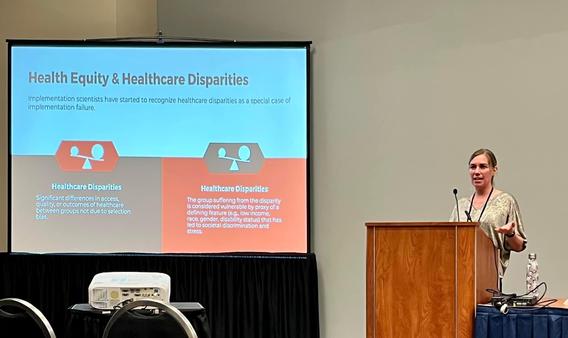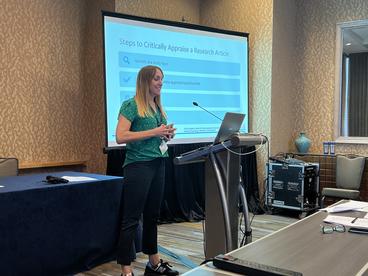Description of our lab
SCIPOWeR’s lab members research psychosocial adaptation to spinal cord injury (SCI). We are interested in identifying psychological factors and interventions that foster resilience and positive psychosocial adjustment after injury; thus, our research efforts aim to improve quality of life and long-term psychosocial outcomes. These research interests have catalyzed our investigations of resilience, injustice appraisals, pain, and other psychological factors and interventions that impact adaptation to injury.

Identify individuals “at risk” for secondary and chronic health issues after spinal cord injury (SCI)
Our efforts have historically focused on resilience and, more recently, injustice appraisals. Several significant findings have emerged from this work. First, we identified that resilient individuals (either during inpatient rehabilitation or at 3-month follow-up) are less likely to be depressed, have more positive thoughts (e.g., optimism, hope, and positive attitude), and report greater perseverance, determination, and social support from friends and family than individuals with low resilience. Second, we found that resilience is a trait-like characteristic as it remained stable across inpatient rehabilitation, at 3-month follow-up, and 12-month follow-up. We have also published findings that suggest appraisals of injustice are a critical factor in adjustment to physical injury/trauma. Our research is the first to examine the role of injustice appraisals in the SCI population. Injustice appraisals are defined as “the severity and irreparability of injury or disability-related loss, perceived unfairness, and externalized blame.” People often perceive injustice when they feel a sense of undeserved suffering and loss or struggle to understand why they were injured, as may be the case after SCI. As a result of our work, we are beginning to understand important factors that may leave patients at higher risk for poor psychosocial and health-related outcomes (e.g., pain, anger) after injury.
Expertise in qualitative methods and dissemination and implementation (D&I)

Qualitative inquiry is particularly helpful in developing a rich, contextual understanding of the constructs we study, ensuring the relevance of our research to the SCI population. Our lab members employ both quantitative and quantitative methodology to answer our research questions. We also have expertise in dissemination and implementation (D&I) science and are committed to conducting research that applies in a real-world context.
Assistive technology and psychosocial outcomes
Our research also examines assistive technology (AT) use in the SCI population. We recently completed a DoD CDMRP SCIRP Qualitative Research Award to explore AT use and functional and psychosocial outcomes after SCI. Results from this study demonstrate that the need to maintain connections with rehabilitation resources is vital to learning about and procuring AT. Findings also show a need for a tailored approach to address AT underutilization in civilian and Veteran populations. Despite the barriers to AT use and the challenges associated with the discovery of AT, utilization of AT may lead to increased independence and function.
Members of our lab serve on national and international committees including:
Academy of Spinal Cord Injury’s (ASCIP) Research Committee
ASCIP’s Board of Directors for Psychologists, Social Workers, and Counselors
International Spinal Cord Society’s (ISCoS) Psychosocial Special Interest Group (SIG)
ISCoS’ Quality of Life SIG
ISCoS’ Psychological Data Set Working Group
Examples of our areas of interest include:
The role of injustice appraisals in adaptation to SCI.
Dissemination and implementation of the SCI physical activity guidelines.
Developing interventions to increase self-efficacy and resilience after SCI.
Evaluating measures for their psychometric properties and clinical and research utility.
Using a person-centered approach to data analysis (e.g., latent class analysis, mixture modeling).
STUDENTSPUBLICATIONS & AWARDSFUNDING